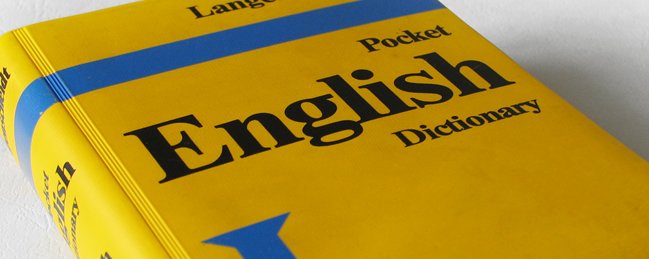La pronunciación es aquella asignatura pendiente que los que estudiamos inglés siempre dejamos para pulir al final, y no es que sea por vaguedad, pues realmente la pronunciación en este idioma no es algo sencillo.
Para ayudarnos con ello, el post de esta semana del profesor Ronan O’Donnell está destinado a dar una ojeada a las partes más escabrosas de la pronunciación del inglés. Y, puesto que para una buena lección de pronunciación no hay nada como oír a un nativo pronunciando, esta entrada incluye audios de cada una de las frases mencionadas, de forma que todos podréis entender las diferencias de pronunciación entre esas dichosas palabras que se escriben igual pero se pronuncian diferente.
The perfect (PERfekt) way to perfect (perFEKT) your English
The English alphabet is made up of 26 letters but it contains between 40-50 different sounds depending on regional variations and dialect. English pronunciation can prove to be difficult for second language speakers as the spelling of a word is not always an accurate guide to its pronunciation.
Heteronyms are words that share the same spelling but have different meanings and pronunciation. The difference in pronunciation is usually due to a change in emphasis or stress on the syllables within the word. Try reading the following piece by Richard J. Ledererand then compare your pronunciation with the sound files(1-21). My students find this website particularly useful when sending me their pronunciation homework sound files, www.vocaroo.com.
Have a try, enjoy and remember that even native speakers don’t get it right all the time. Have a listen:
So, You Wanna Learn English
This little treatise on the lovely language we share is only for the brave. Peruse at your leisure, English lovers.
Reasons why the English language is so hard to learn:1. The bandage was wound around the wound.
2. The farm was used to produce produce.
3. The dump was so full that it had to refuse more refuse.
4. We must polish the Polish furniture.
5. He could lead if he would get the lead out.
6. The soldier decided to desert his dessert in the desert.
7. Since there is no time like the present, he thought it was time to present the present.
8. A bass was painted on the head of the bass drum.
9. When shot at, the dove dove into the bushes.
10. I did not object to the object.
11. The insurance was invalid for the invalid.
12. There was a row among the oarsmen about how to row.
13. They were too close to the door to close it.
14. The buck does funny things when the does are present.
15. A seamstress and a sewer fell down into a sewer line.
16. To help with planting, the farmer taught his sow to sow.
17. The wind was too strong to wind the sail.
18. After a number of injections my jaw got number.
19. Upon seeing the tear in the painting I shed a tear.
20. I had to subject the subject to a series of tests.
21. How can I intimate this to my most intimate friend?
Let’s face it – English is a crazy language. There is no egg in eggplant, nor ham in hamburger; neither apple nor pine in pineapple. English muffins weren’t invented in England or French fries in France.
Sweetmeats are candies while sweetbreads, which aren’t sweet, are meat. We take English for granted. But if we explore its paradoxes, we find that quicksand can work slowly, boxing rings are square and a guinea pig is neither from Guinea nor is it a pig. And why is it that writers write but fingers don’t fing, grocers don’t groce and hammers don’t ham? If the plural of tooth is teeth, why isn’t the plural of booth beeth? One goose, 2 geese. So one moose, 2 meese? One index, 2 indices? Doesn’t it seem crazy that you can make amends but not one amend. If you have a bunch of odds and ends and get rid of all but one of them, what do you call it? If teachers taught, why didn’t preachers praught? If a vegetarian eats vegetables, what does a humanitarian eat?
Sometimes I think all the English speakers should be committed to an asylum for the verbally insane. In what language do people recite at a play and play at a recital? Ship by truck and send cargo by ship? Have noses that run and feet that smell? How can a slim chance and a fat chance be the same, while a wise man and a wise guy are opposites? You have to marvel at the unique lunacy of a language in which your house can burn up as it burns down, in which you fill in a form by filling it out, and in which an alarm goes off by going on.
English was invented by people, not computers, and it reflects the creativity of the human race, which, of course, is not a race at all.
from “Anguished English” by Richard J. Lederer.
For an extensive list of heteronyms click here.






